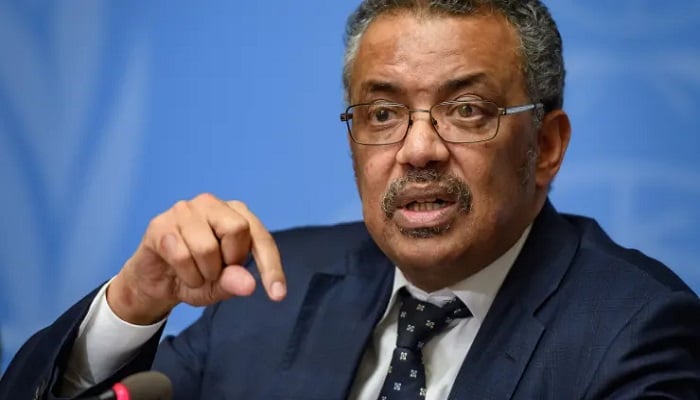WHO declares Covid no longer a global public health emergency
For more than a year, the pandemic has been on a downward trend, with population immunity increasing from vaccination and infection
Covid is no longer a global public health emergency, the World Health Organization (WHO) said Friday, around two months after its head warned that the world may be “dangerously” unprepared for the next pandemic as the flu-like coronavirus that emerged from China about a month ago spreads rapidly to new countries.
The organisation announced the coronavirus outbreak to be a public health emergency of international concern in January 2020, about six weeks before declaring it as a pandemic.
WHO Director-General Tedros Adhanom Ghebreyesus said he made the decision following a recommendation from the WHO’s emergency committee, which met on Thursday for the 15th time.
Ghebreyesus concurred that the public health emergency of international concern, or PHEIC, declaration should end.
"I have accepted that advice," Tedros said. "It is therefore with great hope that I declare Covid-19 over as a global health emergency."
"For more than a year, the pandemic has been on a downward trend, with population immunity increasing from vaccination and infection, mortality decreasing and the pressure on health systems easing. This trend has allowed most countries to return to life as we knew it before Covid-19," Tedros said Friday.
However, he noted that worldwide, someone died of Covid every three minutes last week — a figure that only includes reported deaths.
“The worst thing any country could do now is to use this news as a reason to let down its guard, to dismantle the systems it has built, or to send the message to its people that Covid-19 is nothing to worry about," Tedros said.
A PHEIC creates an agreement between countries to abide by WHO’s recommendations for managing the emergency. Each country, in turn, declares its own public health emergency – declarations that carry legal weight. Countries use them to marshal resources and waive rules in order to ease a crisis.
“There’s still a public health threat out there, and we all see that every day in terms of the evolution of this virus, in terms of its global presence, its continued evolution and continued vulnerabilities in our communities, both societal vulnerabilities, age vulnerabilities, protection vulnerabilities, and many other things,” CNN quoted Dr Mike Ryan, executive director of WHO’s Health Emergencies Programme, as saying.
“So, we fully expect that this virus will continue to transmit, but this is the history of pandemics,” Ryan added.
“In most cases, pandemics truly end when the next pandemic begins. I know that’s a terrible thought but that is the history of pandemics.”
According to WHO data, more than 765 million confirmed Covid-19 cases have been reported since the outbreak of the pandemic. Almost 7 million people have lost their lives so far to this virus. Europe The most confirmed cases overall were reported in Europe, but more deaths were reported in the Americas — around 1 in 6.
Cases hit their highest number in December 2022 as Omicron hit the world with the Western Pacific region suffering the most. Following the administration of billions of doses of vaccines mortality rate did not show any unusual swings.
Currently, Covid-19 cases and deaths are at their lowest in three years; however, over 3,500 people succumbed to this virus in the last week of April, while a huge population of the world continues to remain unvaccinated.
In February, at an executive board meeting in Geneva, Tedros urged the World Health Organization’s 196 member countries to “invest in preparedness,” not “panic.” He added that funding for outbreak preparedness in surrounding countries “has remained grossly inadequate” in the past.
“For too long, the world has operated on a cycle of panic and neglect,” Tedros said, according to a transcript of his remarks. “We throw money at an outbreak, and when it’s over, we forget about it and do nothing to prevent the next one.”
“If we fail to prepare, we are preparing to fail,” he added.
Tedros said more than $1 billion has been spent trying to stop the Ebola outbreak in the Democratic Republic of the Congo. By comparison, he added, just $18 million was spent on preparedness in Congo’s neighbor Uganda before the virus crossed the border.
“This must be a lesson for the rest of the world,” he said.
-
Can brain stimulation make people kinder & less selfish? New study offers hope
-
Mariah Carey details 'hardest' bipolar disorder experience
-
Pink reveals health routine for asthma management
-
Gigi Hadid talks about 'relieving tension' amid having Hashimoto's disease
-
Selena Gomez explains why she thought lupus was 'life-or-death'
-
How Kim Kardashian made her psoriasis ‘almost’ disappear
-
Nick Jonas gets candid about his type 1 diabetes diagnosis
-
Sir Jackie Stewart’s son advocates for dementia patients












